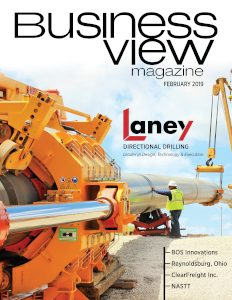The Shutdown – Costs and Consequences
Since midnight on the 22nd of December of last year, until this January 25th – 35 days – talk of the government shutdown has been the main topic of conversation in homes and offices across the nation. This most recent shutdown, the longest in U.S. history, was, in fact, the 22st of its kind since 1976, when Congress introduced the Congressional Budget and Impoundment Control Act, which established the modern federal budget process. Most government shutdowns have lasted a relatively short time, but seven of them in the last four decades, like this one, lasted more than 10 days.
This most recent shutdown affected about a quarter of the federal government’s operations when funding expired for nine of the 15 cabinet-level departments and dozens of agencies, including the Departments of Homeland Security, Transportation, Justice, Commerce, State, Agriculture, Interior, Treasury, and Housing and Urban Development, and agencies like the EPA, FDA, and IRS.
About 380,000 federal employees were furloughed, and an additional 420,000 employees for the affected agencies were expected to work with their pay delayed until the end of the shutdown, totaling 800,000 workers out of 2.1 million civilian, non-postal federal employees. Jobs affected included FBI agents, federal corrections officers, FDA food inspectors, NASA employees, TSA staff, Border Patrol staff and Customs and Border Protection officers, census staff, National Park Service staff, members of the Coast Guard, and Federal Aviation Administration air traffic controllers.
Now that the shutdown has ended – at least for a three-week period during which Congress and the Trump administration work to iron out the differences that caused it – it’s time to tally up the economic impact, and, as usual, the numbers tell only part of the story. According to the non-partisan Congressional Budget Office (CBO), the shutdown cost the economy $11 billion due to lost output from federal workers, delayed government spending, and reduced demand. Most of that will be recovered as government workers receive their back pay, but the CBO also estimated that some $3 billion in economic activity has been permanently lost.
Part of that loss will be borne by an estimated four million government contractors who, unlike federal workers, will not get back pay. In addition, the health and welfare of countless Americans were put in jeopardy when inspections of chemical factories, power plants, oil refineries, water treatment plants, and thousands of other industrial sites ground to a halt because the Environmental Protection Agency had to furlough most of its employees in charge of inspecting pollution and monitoring compliance. In addition, the Food and Drug Administration stopped its routine inspections of seafood, fruits, vegetables, and other foods at high risk of contamination. Airline safety was severely compromised due to the curtailment of aircraft inspections by the FAA, and the added stress placed upon air traffic controllers who were required to work without pay.
Beyond individuals, though, businesses were harmed too. For example, some small businesses were unable to get loans because the SBA wasn’t functioning; private companies couldn’t go public; labeling and customs information was unavailable so exporters couldn’t access up-to-date data to send shipments of products internationally; FEMA stopped issuing new flood insurance policies, disrupting thousands of home sales; and IRS backlogs may mean delayed tax refunds for business owners who depend upon them to cover expenses. And with parks, museums, and national monument closed, businesses that rely on tourism saw a big drop-off in revenue.
In the end, though, the biggest consequence of the shutdown might have been a loss of confidence of the American people in their government. Because, regardless of the many different political persuasions and opinions of the populace, and who they feel may have been most responsible for the shutdown, as a whole, they expect the government that they pay for to conduct itself in a manner consistent with those in the medical profession who take the Hippocratic Oath and swear by its critical dictum: “First, do no harm.”
Check out this handpicked feature on 5 Tips for Choosing the Best Travel Insurance for Your Cruise.

